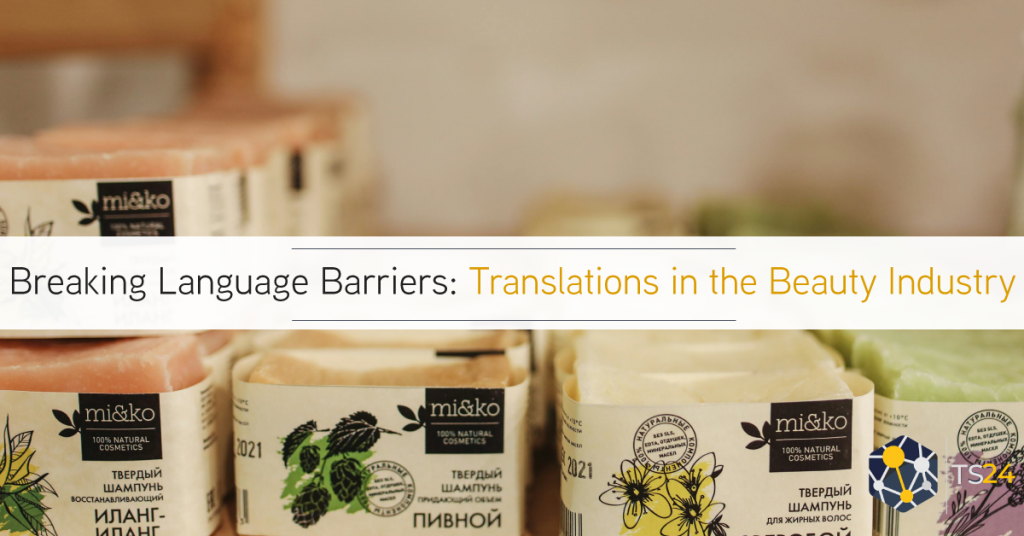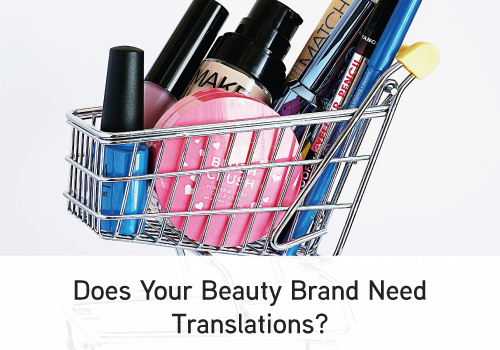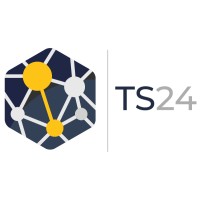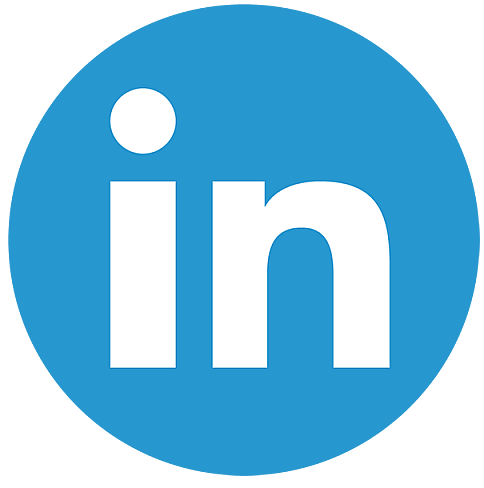Breaking Language Barriers: The Significance of Translations in the Beauty Industry
Beauty and cosmetic trends vary across the globe. For instance, Asian consumers prefer red lipstick and a porcelain complexion. At the same time, those in the West opt for a bronzed sun-kissed glow.
But even with these cultural differences, one thing remains the same: the beauty products. Thanks to globalisation, brands like Charlotte Tilbury and Revlon are widely available worldwide. That’s why the global beauty and personal care market generated $625.7 in revenue in 2023.
While the same product can be supplied worldwide, the language barrier can still pose a problem. Translation services in cosmetics come to the rescue. In today’s article from TS24’s translation experts, we’ll take a closer look at what they do and why they’re so important for brands to grow internationally.
TRANSLATION EXPERT’S TIP: Want to learn more about certified and official translations from translation experts? Make sure to visit our certified translation services page.
The Importance of Translations in the Beauty & Cosmetic Industry
A cosmetic industry dilemma is that most businesses don’t prioritise translations. For many, beauty products are merely aesthetic.
But that’s not true anymore. Consumers are becoming more health-conscious. So, they want to know as much as possible about your product.
On top of that, the beauty industry is highly saturated. You might be offering a great product, but if you don’t reach out to your target audience in their native language, they’ll turn to a local alternative they can understand better.
That means businesses need to take their translation game up a notch. Linguistic proficiency alone doesn’t suffice. The translators you work with should also be familiar with the beauty industry’s terminology and trends.
They should know about common ingredients in beauty and skincare products. Similarly, they must understand the regulations and certifications applicable in different countries.
More importantly, they should be able to work with your marketing team. Creating market content already takes long enough. You don’t want to delay it even more with back-and-forth communication with translators.
As a result, to obtain the most accurate translation services for your materials and documents, you should work with a professional translation agency which works with specialist translators and language interpreters.
TRANSLATION EXPERT’S TIP: Do you run a business in the tourism sector? Find out how translation services can help your brand grow in our latest article!
Where Are Translation Services Needed in Beauty and Cosmetic Industries
We’ve established that since the beauty industry is a global business, it requires translations. But what exactly needs to be translated?
Product Ingredients
Let’s say you’re a makeup brand in the UK. You’re now planning to expand to South Asia. The first task would be translating your product ingredients into the local language.
Why? One reason is that consumers need to know what they’re putting on their skin. If an Indian consumer has sensitive skin, they will want to avoid products with alcohol or fragrances.
Second, you want to avoid any legal issues. Countries like South Korea and Japan have stricter regulations regarding product labelling.
Usage Instructions
Brands in the skincare and personal care industry must also translate usage instructions. Suppose you make skincare serums that contain actives like AHAs and Vitamin C. You should include instructions for the correct application.
If not, customers may use the product incorrectly and not get the desired results. Even worse, incorrect use can be harmful in some instances. For example, retinol can cause skin irritation if you don’t build your body’s tolerance towards it over time.
As a business, it’s your responsibility to inform your customers about the proper usage of a product. Similarly, if your product contains any allergens or has potential side effects, you should include that information, too.
Marketing Information
Marketing forms the crux of your expansion into a new country. But it’s only effective if your target audience comprehends the marketing material.
Not everyone speaks English. In this time and age, customers expect brands to be mindful of this. Some countries, such as Saudi Arabia, focus more on their local language, Arabic.
In such markets, you must speak the consumers’ tongue and not vice versa. So, you must translate your marketing material into the target language. That includes everything from your billboards to social media posts and product descriptions.
You also have to consider cultural sensitivities when marketing in a foreign country. Certain symbols, phrases, words, and colours may have different meanings in different cultures. You don’t want to offend or alienate potential customers accidentally.
Working with translation service providers in the beauty and skincare industry can be beneficial in navigating these differences. They know the ins and outs of your target market. Plus, they’ll keep cultural nuances and colloquialisms in mind during translations.
Email Marketing
There’s no doubt about the ubiquity of social media. But it would be wrong to say that email marketing has disappeared from the picture; it’s still very much alive.
But like every other aspect of marketing, you have to make changes here, too, when you take your business to a new country. You might wonder why your key performance indicators (KPIs) are not telling you a happy story.
The email subject lines are perfect. Your copy is excellent. The frequency is not too high. Yet, your click-through rates are low. It’s probably a language issue.
If most of your audience speaks Arabic or Mandarin, sending them emails in English won’t do much to promote your business. Instead, if you translate your email campaigns, you can then create meaningful communication.
E-Commerce Translation
If you go to popular apparel sites like Zara and H&M, you’ll see the option to switch languages. With one click, the whole site changes to Spanish.
Businesses in the cosmetics industry need to follow suit. E-commerce translation isn’t limited to the home page alone. Translate the product descriptions and payment page, too. If you have an app, don’t forget to translate its content.
When customers see a familiar language, they’re more likely to purchase. It also leaves a good impression on them, showing that you care about their language and culture.
TRANSLATION EXPERT’S TIP: Learn more and find out how important in today’s globalised world are legal translation services for law firms.
Conclusion
For far too long, the beauty industry has been considered ”easy” because it’s all about appearances. However, the rise of conscious consumerism and globalisation has changed that perception.
People no longer only go for big brand names and pretty packaging. They also want to know what they’re putting on their skin and where it came from.
In this new landscape, translation is crucial in connecting businesses with their target audiences. You’ll need translation services in the beauty industry to establish credibility and converse with your audience in a language they feel comfortable with.
About TS24
Translation Services 24 (TS24) is a leading translation services company providing expert services in over 200 languages. We work with clients in all corporate and public industries and specialise in sector-specific linguistic solutions. With over a decade of experience in the industry, 15+ million words converted every year and 100,000+ projects completed, TS24 is a leading provider of expert translations and interpretation services and an officially certified member of the ATC. Contact TS24 here. You can also read all of our recent articles here.
Follow Translation Services 24 on Social Media







